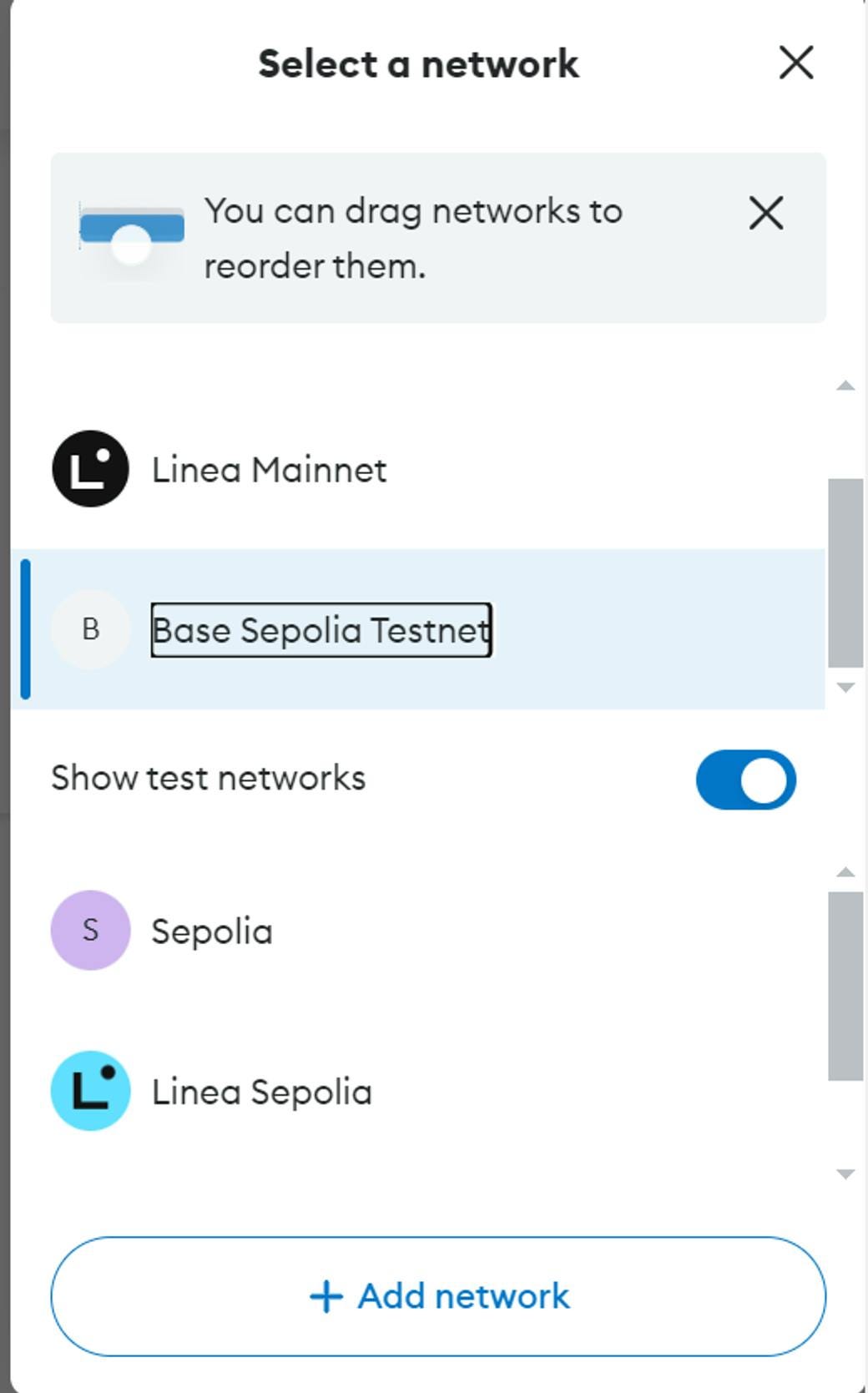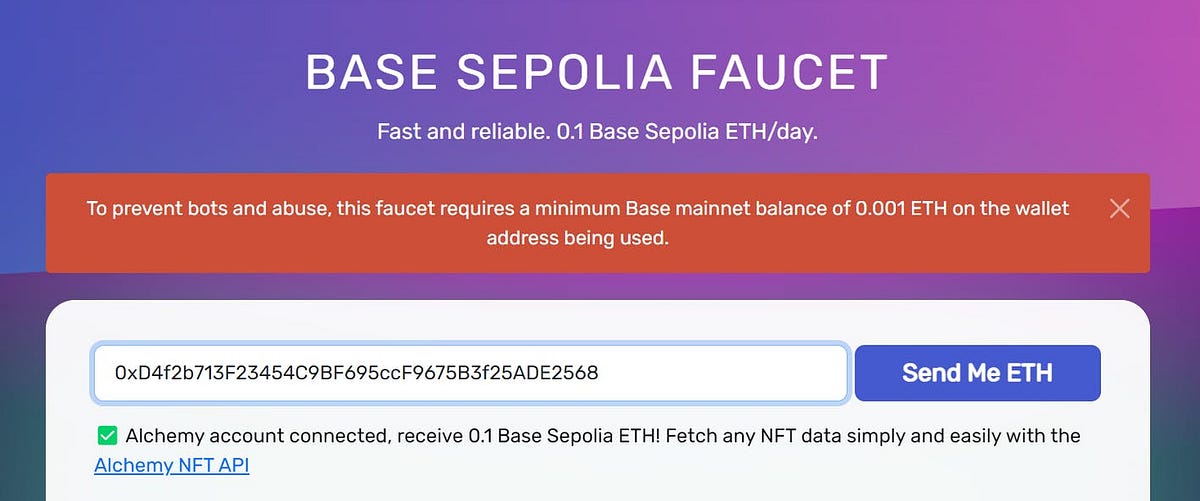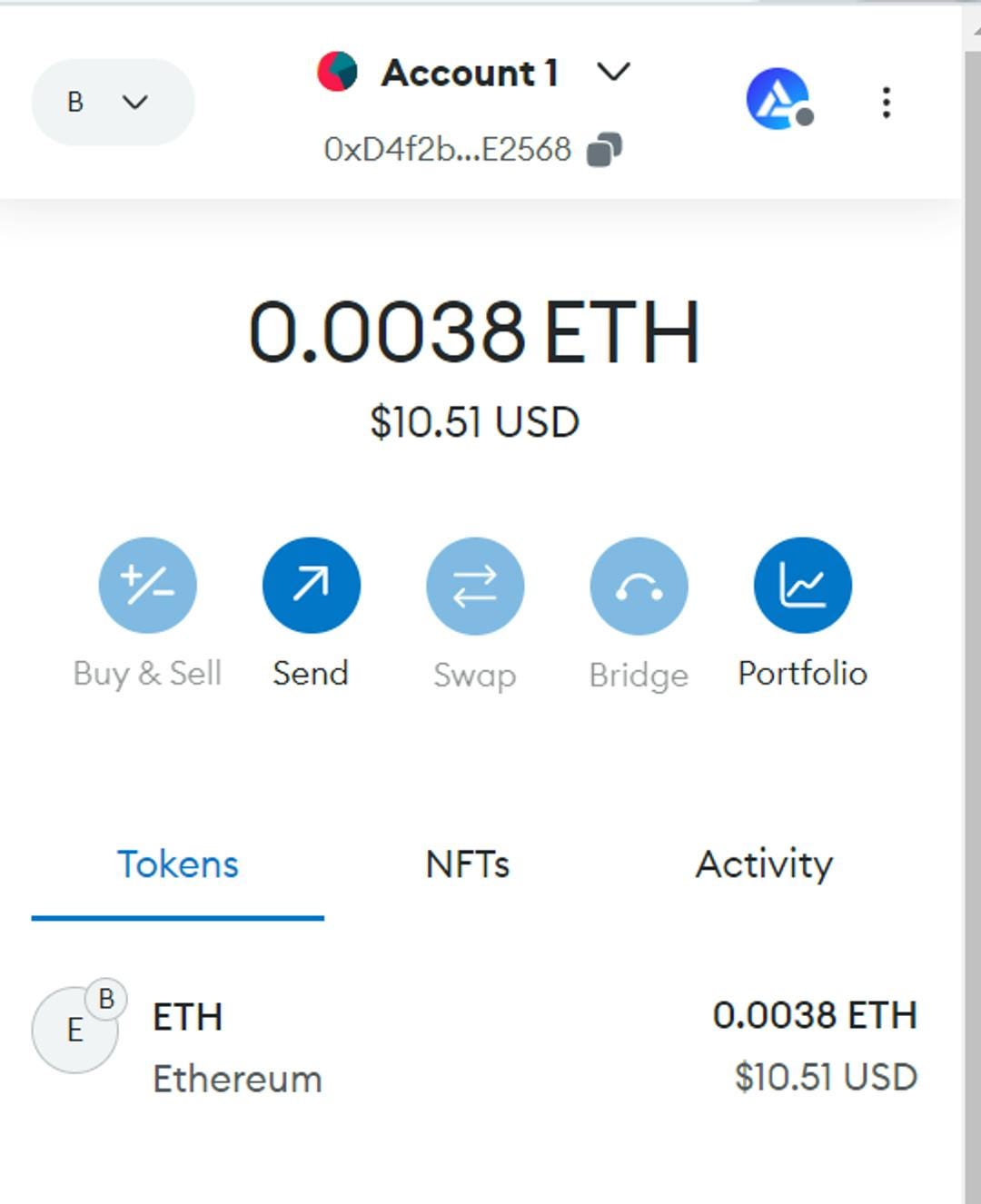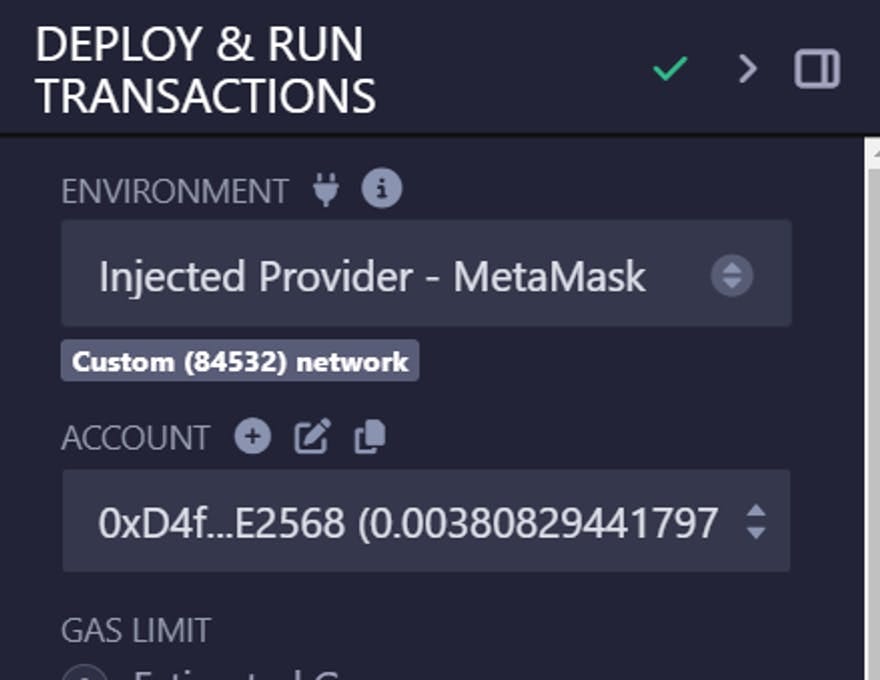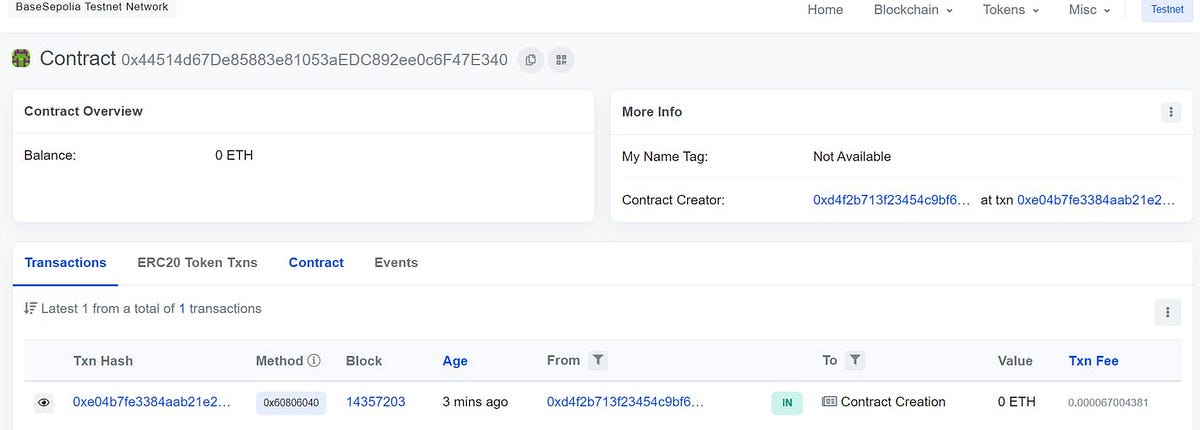Developing Smart Contracts III On Base: A Simple Ether-Wallet.
prerequisites:-
What is an Ether-Wallet?
Usecases of an EtherWallet.
Deployment on Base.
WHAT IS AN ETHERWALLET?
An EtherWallet is a simple smart contract that allows an owner to store and withdraw Ether (ETH) securely. The contract includes basic wallet functionality, such as accepting deposits, enabling withdrawals by the owner, and viewing the wallet balance.
// SPDX-License-Identifier: MIT
pragma solidity ^0.8.26;
contract EtherWallet {
address payable public owner;
constructor() {
owner = payable(msg.sender);
}
receive() external payable {}
function withdraw(uint256 _amount) external {
require(msg.sender == owner, "caller is not owner");
payable(msg.sender).transfer(_amount);
}
function getBalance() external view returns (uint256) {
return address(this).balance;
}
}
pragma solidity ^0.8.26;
- This line defines the version of Solidity that the contract is written in. The contract requires Solidity version 0.8.26 or later to compile and run.
contract EtherWallet {
Declares the start of the EtherWallet contract. It defines a new contract called EtherWallet.
address payable public owner;
This line declares a state variable
ownerof typeaddress payable, which stores the address of the contract's owner.payablemeans that this address can receive Ether.publicmakes theownervariable accessible to anyone outside the contract, meaning anyone can view the owner’s address.
constructor() {
owner = payable(msg.sender);
}
This is the constructor function. The constructor is a special function that is executed only once, when the contract is deployed.
msg.senderis the address of the account that deployed the contract.owner = payable(msg.sender);sets theownervariable to the address of the account that deployed the contract, making the deployer the owner of the wallet.
receive() external payable {}
This is a receive function, a special function in Solidity that allows the contract to accept Ether.
It is marked
external, meaning it can be called from outside the contract, andpayable, meaning it can accept Ether transfers.This function doesn’t contain any logic, but it allows the contract to receive Ether by sending it directly to the contract’s address.
function withdraw(uint256 _amount) external {
require(msg.sender == owner, "caller is not owner");
payable(msg.sender).transfer(_amount);
}
- This function allows the owner of the contract to withdraw Ether from the contract.
function withdraw(uint256 _amount): The function takes one argument,_amount, which is the amount of Ether (in wei) the owner wants to withdraw.require(msg.sender == owner, "caller is not owner");: This line checks if the caller (i.e., the address calling the function) is the owner of the contract. If the caller is not the owner, the transaction is reverted with the error message"caller is not owner".payable(msg.sender).transfer(_amount);: If therequirecheck passes, the specified_amountof Ether is transferred from the contract to the owner's address (msg.sender).
function getBalance() external view returns (uint256) {
return address(this).balance;
}
- This function allows anyone to check the current Ether balance of the contract.
external view:externalmeans the function can be called from outside the contract.viewmeans the function does not modify the state of the contract; it only reads data.returns (uint256): The function returns a value of typeuint256(the balance of the contract in wei).return address(this).balance;: This line returns the contract's balance by usingaddress(this).balance, which represents the total amount of Ether held by the contract.
Below is the code in Remix IDE.
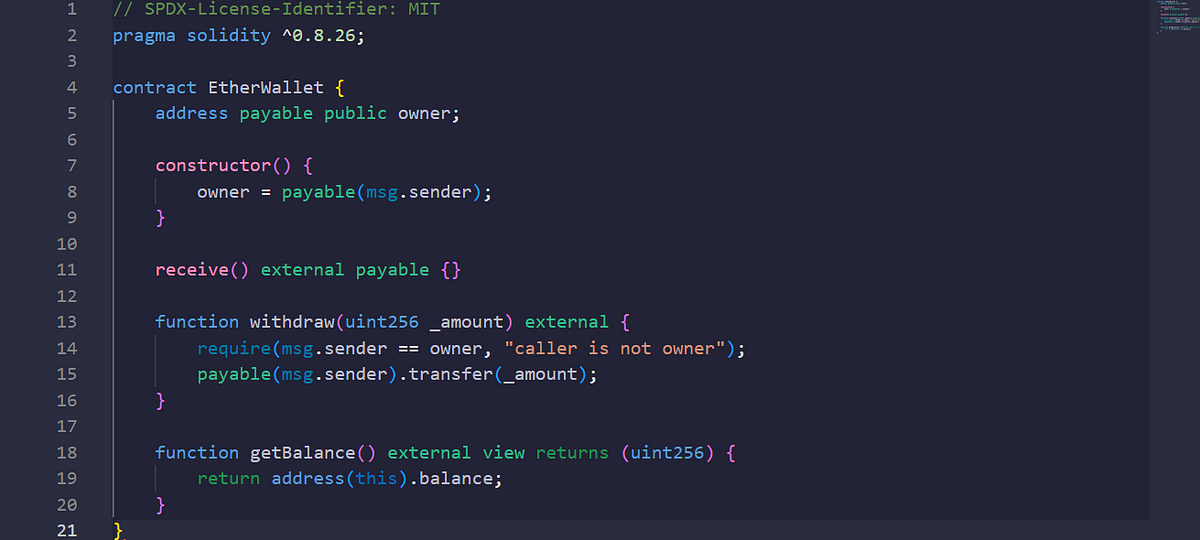
DEPLOYMENT ON BASE.
Navigate to your metamask and add Base Sepolia Testnet to the list of networks. Click this to get some gas fees for deployment on base testnet.
After this, you should have been rewarded with 0.1Base Sepolia ETH!
Navigate back to your wallet.
Next is to connect your wallet to remix for smooth deployment.
Check for the address.
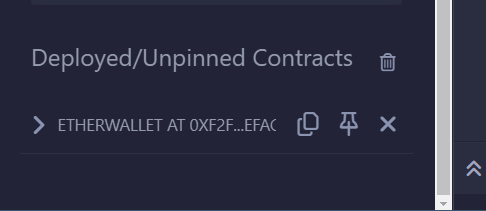
And verify on Base Sepolia Etherscan. Paste Address.
Conclusion
Congratulations on successfully creating your very own simple storage smart contract on the Base network! .
USE-CASES OF AN ETHER-WALLET.
Secure Ether Storage
EtherWallets are primarily used to securely store Ether, which is the native cryptocurrency of the Ethereum network.
Users can deposit their Ether into the wallet and control access to it using private keys.
The wallet in the code example ensures that only the designated owner of the wallet can withdraw funds, adding a layer of security.
Payment Gateway
An EtherWallet can function as a payment gateway for receiving and sending Ether in decentralized applications (DApps).
It can be integrated into a DApp that allows businesses to accept Ether as payment for services or products. For example, an e-commerce site could use an EtherWallet to process customer payments.
Crowdfunding or Donations
EtherWallets can be used for crowdfunding campaigns, allowing multiple contributors to send Ether to the wallet as donations or investments.
Charitable organizations could use EtherWallets to accept crypto donations securely, with the funds stored in the wallet until they are needed.
Automated Payments and Withdrawals
EtherWallets can be programmed to automatically distribute funds. For instance, a wallet could be part of a smart contract that automates recurring payments, such as salaries or subscription services.
Smart contracts could use the wallet to distribute rewards to participants or investors in DeFi platforms, based on predefined conditions.
DeFi and Staking
In decentralized finance, EtherWallets can act as vaults for staking Ether or other tokens in return for rewards. Users can deposit their Ether into the wallet, which interacts with DeFi protocols for lending, staking, or liquidity provisioning.
The wallet can also serve as a collateral manager for borrowing against Ether holdings in DeFi applications.
Escrow Services
EtherWallets can be used to implement escrow services on the blockchain. The wallet holds Ether until a certain condition is met (e.g., goods are delivered or services are rendered).
The funds are released from the wallet only when the pre-agreed conditions in the smart contract are fulfilled, providing trustless transaction mediation.
Gas Fee Management
Wallets on Ethereum need to manage gas fees, which are required for executing transactions on the network. An EtherWallet can help manage and track the gas costs involved in transactions.
In more advanced use cases, EtherWallets can be programmed to optimize gas costs for frequent or complex transactions.
Token Sale Participation
EtherWallets can be used to participate in Initial Coin Offerings (ICOs) or Token Sales by sending Ether to the designated ICO smart contract.
The wallet can hold the Ether until the token sale starts, and then transfer the necessary amount to the token contract for purchasing new tokens.
Gaming and Virtual Economies
EtherWallets are useful in blockchain-based games where players need to store in-game assets (like tokens) or earn rewards in Ether.
Wallets can interact with gaming smart contracts to manage the flow of assets between the game and the player, ensuring a seamless user experience.
Cross-Border Transactions
An EtherWallet allows for fast, global transactions without the need for traditional banks. This is useful for individuals and businesses looking to make cross-border payments with reduced fees and faster processing times compared to traditional systems.
It can be used by freelancers or companies operating globally to receive payments or send funds across borders efficiently.
Multi-signature Wallets (Advanced Use Case)
EtherWallets can be expanded to support multi-signature functionality, where multiple parties need to sign off on a transaction before it can be executed.
This is useful for corporate treasuries, decentralized autonomous organizations (DAOs), or joint ventures where more than one person needs to authorize a transaction.
Smart Contract Interactions
EtherWallets can be used to interact with various Ethereum-based smart contracts, including decentralized exchanges (DEXs), lending platforms, and automated market makers (AMMs).
Users can send funds from their wallets to smart contracts to swap tokens, provide liquidity, or participate in governance decisions on the blockchain.
